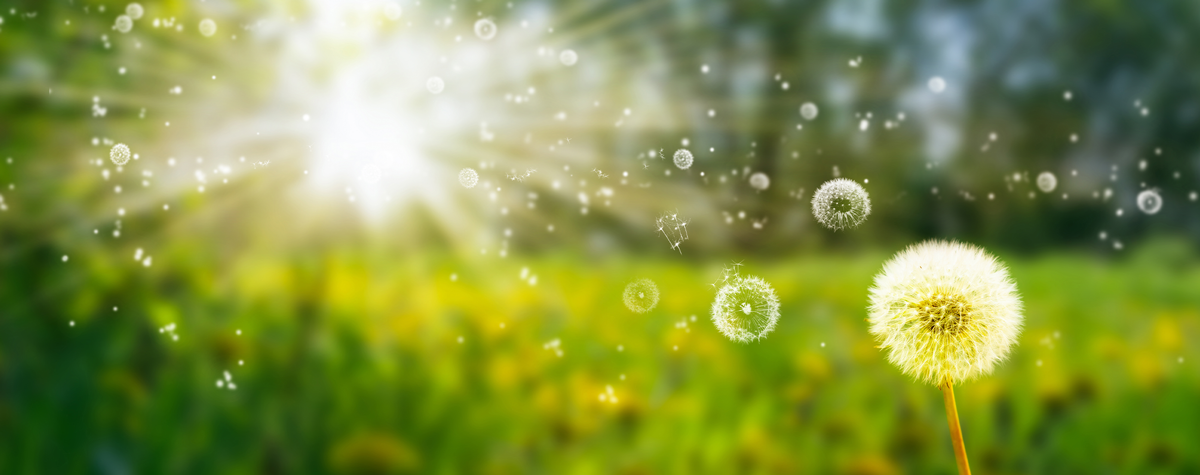Spring is right around the corner with seasonal allergies in tow. As you get ready with your regular treatment, consider that now might be the perfect time to start introducing Quercetin into your daily nutrition. Not only may it help relieve allergy symptoms, but other potential health benefits include helping to reduce inflammation. Let’s get into the health benefits a little more.
Quercetin as an AntihistamineStudies have shown that Quercetin’s natural anti-inflammatory properties can reduce our body’s production of histamines. Histamines are the chemicals in our bodies that are responsible for allergies. While they’re usually helpful in our daily lives, protecting our bodies from harmful foreign invaders, they sometimes falsely identify safe substances as harmful. When that happens with something like pollen, suddenly the air you breathe starts feeling like a minefield of watery eyes and sneezes. Increasing your body’s intake of Quercetin may offer some relief when it’s needed most.
Quercetin dosing in clinical trialsMost human studies that look at the benefits of Quercetin use doses of 500mg to 1000mg per day. So, what are the best sources of Quercetin and how much Quercetin is in them?
Sources of Quercetin
Fruits and Vegetables
Fruits and vegetables are excellent, natural and healthy sources of Quercetin–with capers, yellow peppers, and red onions being the standouts. You’ll notice that most of the foods on this list are labeled ‘(raw)’ or ‘(with skin).’ That’s because cooking vegetables and fruits actively lowers food’s Quercetin content. In addition, the skin of many fruits and vegetables has a much higher Quercetin content, compared to the flesh. To maximize your Quercetin intake from fresh fruits and vegetables, try to eat them raw or with skin, when appropriate.
|
Food
|
Amount of Quercetin (mg/100g of food) |
|
Capers (raw) |
233.84 |
|
Hot Yellow Peppers (raw) |
50.73 |
|
Red Onions (raw) |
39.21 |
|
Asparagus (cooked) |
15.16 |
|
Cranberries (raw) |
14.84 |
|
Hot Green Peppers (raw) |
14.70 |
|
Lingonberries (raw) |
13.30 |
|
Blueberries (raw) |
7.67 |
|
Red Leaf Lettuce (raw) |
7.61 |
|
White Onion (raw) |
6.17 |
|
Tomato (canned) |
4.12 |
|
Red Delicious Apples (with skin) |
3.86 |
|
Gala Apples (with skin) |
3.80 |
|
Golden Delicious Apples (with skin) |
3.69 |
|
Broccoli (raw) |
3.26 |
|
Sweet Cherries (raw) |
2.29 |
|
Black Grapes |
2.08 |
|
White Grapes |
1.12 |
Unfortunately, aside from capers, most food sources don’t provide a significant amount of Quercetin. 100g of yellow peppers provides approximately 50mg of Quercetin. Meanwhile, studies that analyze the effects of Quercetin use dosages of 500-1000 mg daily. Reaching that amount from food sources alone is a difficult task. Not only that, but Quercetin’s bioavailability is also low, meaning our bodies have a tough time absorbing it. Try using a daily vitamin to supplement your daily Quercetin intake, in addition to fruits and vegetables.
Quercetin 15x
Quercetin 15x is a fantastic, vegan-friendly supplement that offers a full 250 mg of Quercetin per capsule. Not only that, it incorporates Platinum Naturals’ Omega Absorb™ delivery system, which improves absorption. A perfect aid to combat Quercetin’s naturally hard-to-absorb property. Taking one to two Quercetin 15x capsules daily is a fantastic way to give your body a Quercetin boost.
References:
- Asgharian, P., Tazekand, A.P., Hosseini, K. et al. Potential mechanisms of quercetin in cancer prevention: focus on cellular and molecular targets. Cancer Cell Int 22, 257 (2022). https://doi.org/10.1186/s12935-022-02677-w
- D'Andrea, Gabriele. “Quercetin: A flavonol with multifaceted therapeutic applications?.” Fitoterapia vol. 106 (2015): 256-71. doi:10.1016/j.fitote.2015.09.018
- LiverTox: Clinical and Research Information on Drug-Induced Liver Injury [Internet]. Bethesda (MD): National Institute of Diabetes and Digestive and Kidney Diseases; 2012-. Quercetin. [Updated 2020 Mar 28]. Available from: https://www.ncbi.nlm.nih.gov/books/NBK556474/
- Mlcek, Jiri et al. “Quercetin and Its Anti-Allergic Immune Response.” Molecules (Basel, Switzerland) vol. 21,5 623. 12 May. 2016, doi:10.3390/molecules21050623
- Serban, Maria-Corina et al. “Effects of Quercetin on Blood Pressure: A Systematic Review and Meta-Analysis of Randomized Controlled Trials.” Journal of the American Heart Association vol. 5,7 e002713. 12 Jul. 2016, doi:10.1161/JAHA.115.002713
- Vafadar, A., Shabaninejad, Z., Movahedpour, A. et al. Quercetin and cancer: new insights into its therapeutic effects on ovarian cancer cells. Cell Biosci 10, 32 (2020). https://doi.org/10.1186/s13578-020-00397-0







